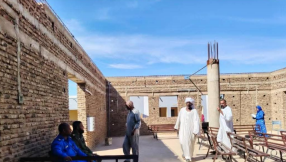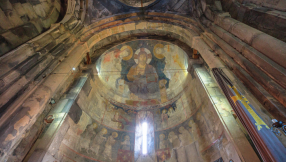An ancient pool unearthed by archaeologists near Jerusalem is being linked to where St Philip may have baptised the Ethiopian eunuch.
The large pool is part of a system of a network built during the Byzantine era and discovered at Ein Hanniya Park between 2012 and 2016, officials said on Wednesday according to the New York Post. They date back to between the 4th and 6th centuries AD, according to the Israel Antiquities Authority, and are typical of royal structures during the First Temple period 960 BC and 586 BC.

It is unclear what the pool would have been used for, experts said.
'It's difficult to know what the pool was used for — whether for irrigation, washing, landscaping or perhaps as part of baptismal ceremonies at the site,' said Irina Zilberbod, excavation director for the Israel Antiquities Authority.
Ancient coins, pottery and glass also found at Ein Hanniya site suggest it was also a hive of activity between the 4th and 6th centuries BC.
'We believe that some early Christian commentators identified Ein Hanniya as the site where the Ethiopian eunuch was baptised, as described in Acts 8:26–40,' Jerusalem district archaeologist Dr Yuval Baruch said in a statement.
'The baptism of the eunuch by St Philip was one of the key events in the spread of Christianity. Therefore, identifying the place where it occurred occupied scholars for many generations and became a common motif in Christian art.'
It is one of a number of extraordinary discoveries in recent years which could shed light on the earliest centuries of Christianity.













